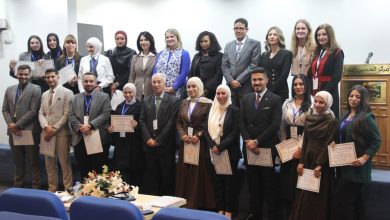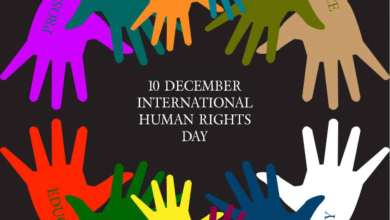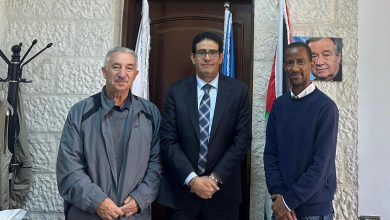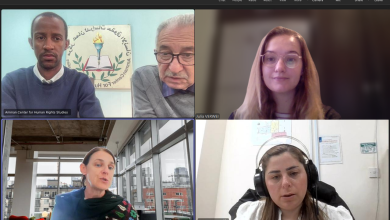Egypt’s crackdown on human rights activists continue despite release of political prisoners
Matthias Alffram

On Wednesday 19th of July 2023, Egypt granted presidential pardon to two well-known human rights activists: Patrick George Zaki and Mohamed Al-Baqer. Their release was part of Egypt’s initiative to pardon political prisoners in a reform attempt to improve Egypt’s human rights record after growing criticism from the international community.
Last year, in the weeks leading to the COP27 Climate Conference in Sharm El-Sheik, Egyptian authorities released a total of 766 political prisoners. However, many human rights groups deemed this move as misleading, as the government had in fact increased its arrests and crackdown on political and environmental activists. According to Amnesty International, during the same period, Egyptian authorities arrested more people than the number of those released. The official number totalling to 1,540 people arrested.
Recap of the 2022 COP27 Climate Conference
The 27th edition of the United Nations Climate Change Conference – COP27 – took place in the red sea resort of Sharm El-Sheikh in Egypt, from the 6th to the 18th of November 2022. In the space of two weeks, more than 40,000 participants, from 197 countries, attended the summit.
The 2022 climate conference had been presented by the Egyptian president as an opportunity to demonstrate unity and the right moment to implement solid actions in the fight against climate change. However, as the world was preparing for the launch of the historical event, several human rights organizations, protestors and experts took the stage to voice their concerns over the Egyptian regime’s long record of repression on civil society.
Days before the COP27
In the days leading to the COP27, Egyptian authorities stepped up security measures, restricting the right to protest. As a result, the authorities arrested numerous activists across the country.
In Cairo, authorities deployed roadblocks and checkpoints to surveil civilians’ mobile phones for any anti-government content. According to local media, cafes and shops in downtown Cairo were even forced to close early in the afternoon. Moreover, sports and arts events were canceled in an attempt to deter any potential demonstration or gathering from activists and the civil society.
According to Hugo, a French student studying at Cairo University stated: “our school organized a meeting warning us to stay away from main streets and squares during the COP27. They told us that all the police officers would be deployed and that anyone close to the Tahrir square will be considered as a suspect, especially foreigners who might be mistaken as journalists.” He added that students were told to keep their phones at home as Egyptian authorities might confiscate or go through them.
In Sharm El-Sheikh, security measures stepped-up as cameras were installed in all taxis, enabling constant surveillance and recording of conversations – later sent to a “security observatory” run by the Interior Ministry.
In the days leading up to the climate conference, the Egyptian government also released a mobile application where participants had to share personal information, such as their passport number. The app also required access to the person’s phone camera, microphone, location and Bluetooth connection. This information was noted that it could later on be shared with third parties. This raised serious privacy and security concerns as the data collected could be used by the government to spy and further crackdown on dissidents.
“The COP27 app is really part of the wider surveillance structure in Egypt,” stated Hussein Baoumi, of Amnesty International. “They don’t want to allow the right to protest or freedom of assembly, but they want to seem though they are. It’s [President] Sisi’s vision of a protest – you go to a place and register and protest for an hour where no one can see you, and then they have you on camera where the authorities can see if you say something they don’t like. It’s the act of a State that doesn’t want to allow freedom of assembly, but doesn’t want to be called out for not permitting it,” he added.
On October 31st 2022, Ajit Rajagopal, an Indian climate activist was the latest person to be arbitrarily detained before the COP27 debut, as he was setting off on an eight-day walk from Cairo to Sharm El-Sheikh, in an attempt to shed light on the current climate situation. He was arrested by local authorities at a checkpoint for allegedly not having an authorization to protest. As of November 1st, the news website Middle East Eye claimed that “150 people are being held in detention facilities under charges relating to misusing social media and joining a terrorist group”. According to the Egyptian Commission for Rights and Freedoms (ECRF), more than 1,000 people had been detained in Egypt, from early October to late November 2022, as part of the government’s crackdown on protest and activists.
Egypt’s long history of repression and human rights abuses
Since the eruption of the Arab spring in 2011, the right to protest, freedom of speech and basic civil rights has been severely eroded in Egypt, with almost no space left for independent media and civil society to operate.
This has worsened however, with the rise of Abdel Fattah Al-Sisi to power in 2013. A few weeks after overthrowing the former President Mohammed Morsi, through a military coup, demonstrations broke out in Cairo at the Nahda Square and at Rabi’a al-Adawiyya mosque. In order to disperse the pro-Morsi crowd and put an end to the protest, Sisi called in armored personnel carriers, bulldozers, snipers, police officers and the army to raid camps and gun down protestors, killing at least 817 people. This was revealed by scholar Bruce K. Rutherford.
Human Rights and freedom of speech has since been on continuous decline in Egypt. Between 2013 and 2014, for instance, “security forces detained, charged, or sentenced 41,000 people. Hundreds of Egyptians have also been sentenced to death, many after trials fall short of minimal standards of due process” states Rutherford.
In 2021, Human Right Watch revealed that “Egypt continued to escalate its use of the death penalty and execution, in many cases following unfair proceedings and mass trials.” In the first six months of 2021, it was reported that an estimated 80 people were executed by local authorities. Amnesty International even flagged Egypt as the third worst country in the number of executions worldwide in 2020.
Furthermore, prisoners’ detention conditions have severely deteriorated over the years under Sisi’s rule. Independent organizations are constantly barred from inspecting and monitoring the conditions and human rights abuses in prisons. In 2021, the Committee for Justice – an independent association – declared that 57 prisoners had died in custody in the first eight months of 2021.
Alaa Abdel Fattah: a symbol in the fight for human rights
One of the most high-profile cases of Egypt’s crackdown on human rights is the detention of British-Egyptian human rights activist Alaa Abdel Fattah. He has been jailed on a five-year sentence – since September 2019 – for allegedly spreading fake news and joining a terrorist group.
According to Alaa’s family and several other sources, he was sent to Tora Maximum Security 2 Prison in Cairo where he was subjected to torture, harassment, intimidation and inhuman treatment, before being sent to another prison complex.
During his stay in the maximum security complex, he was kept in a small, poorly ventilated cell and was denied a bed or even a mattress. He was also deprived of any visits, sunlight, exercise, adequate clothing, hot water and any personal belongings, including family photos.
Alaa Abdel Fattah had been on a seven month long hunger strike in protest against his detention conditions. He also ceased drinking water on November 6th – the day the COP27 began – in order to pressure Egypt’s leaders to allow him access to the English consular. He eventually put an end to his hunger on the 14th of November after collapsing and encountering a near death experience.
In support of Alaa Abdel Fattah, several hundred organizations and more than 500 individual activists – such UN experts, Greenpeace, Greta Thunberg, and many more – called on the Egyptian authorities for his release.
Sixteen Nobel prize winners urged world leaders attending the COP27 “to not forget Alaa Abdel Fattah and the thousands of political prisoners in Egypt’s prisons”.
Furthermore, the UN Special Rapporteur on human rights and the environment stated “In advance of COP27, I am joining the chorus of global voices calling for the immediate release of Alaa Abdel Fattah, an Egyptian activist who has languished in jail for years merely for voicing his opinion. Freedom of speech is a prerequisite for climate justice!”.
Alaa Abdel Fattah is only one of Egypt’s 60,000 political prisoners, who are still locked up on vague charges and held in deplorable conditions.
ACHRS’ position
ACHRS strongly condemns the Egyptian government’s long history of repression on human rights, as we firmly support and believe in the right to protest and freedom of speech.
ACHRS condemns Egypt’s continuous surveillance and crackdown on activists and encourages all civil society members to continue to exercise their right to protest and freedom of speech in peaceful manners.
Furthermore, we call on the UN Office of the High Commissioner for Human Rights (OHCHR) and all UN member states – especially the British government – to pressure the Egyptian government into releasing Alaa Abdel Fattah and all political prisoners who have been detained on vague charges for exercising their rights.
Source:
Rutherford, Bruce K. and Sowers, Jeannie. 2018. “Modern Egypt: What Everyone Needs to Know”. (Oxford: Oxford University Press).




